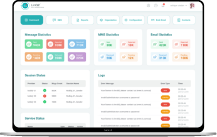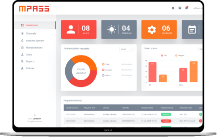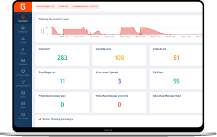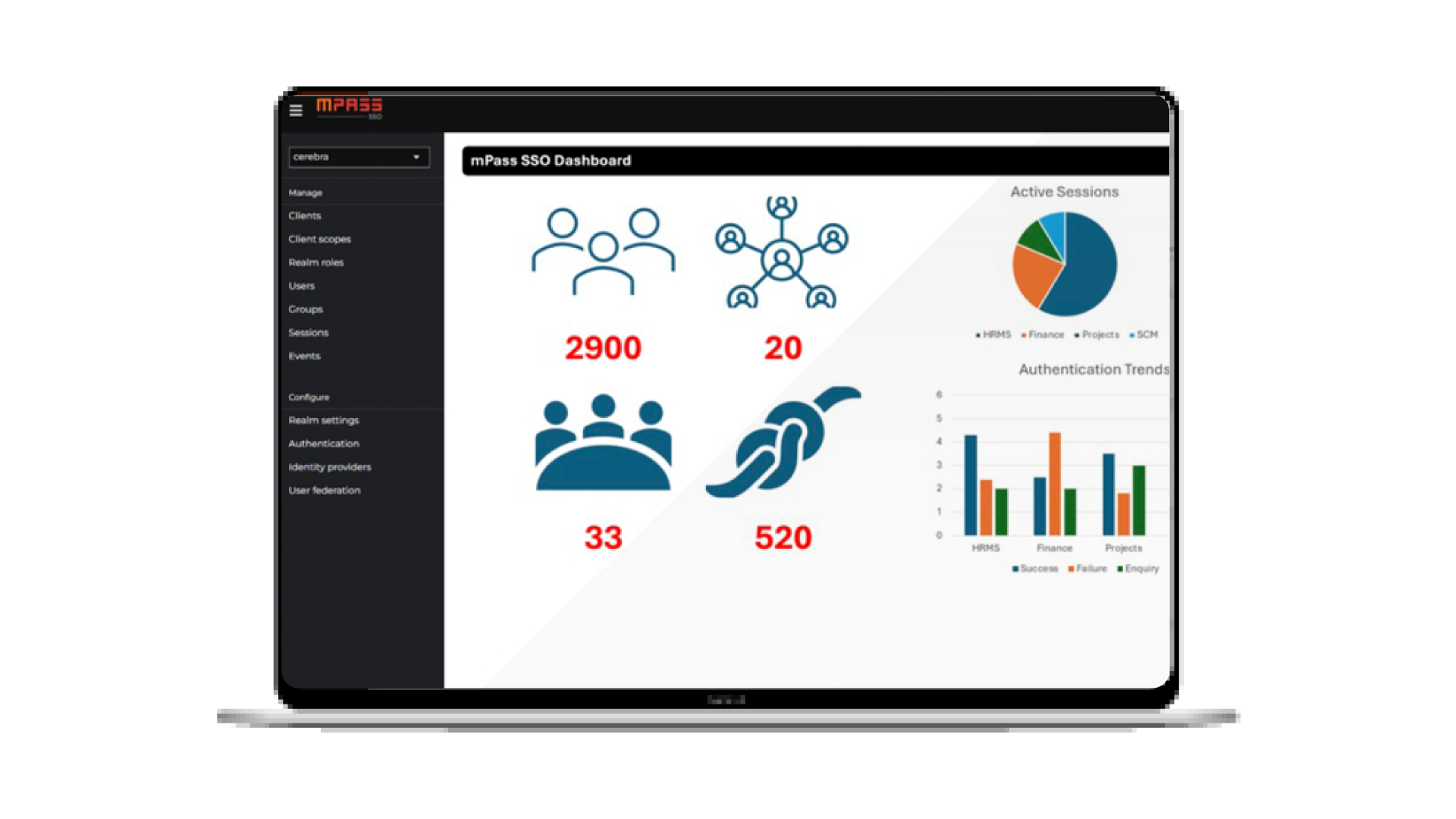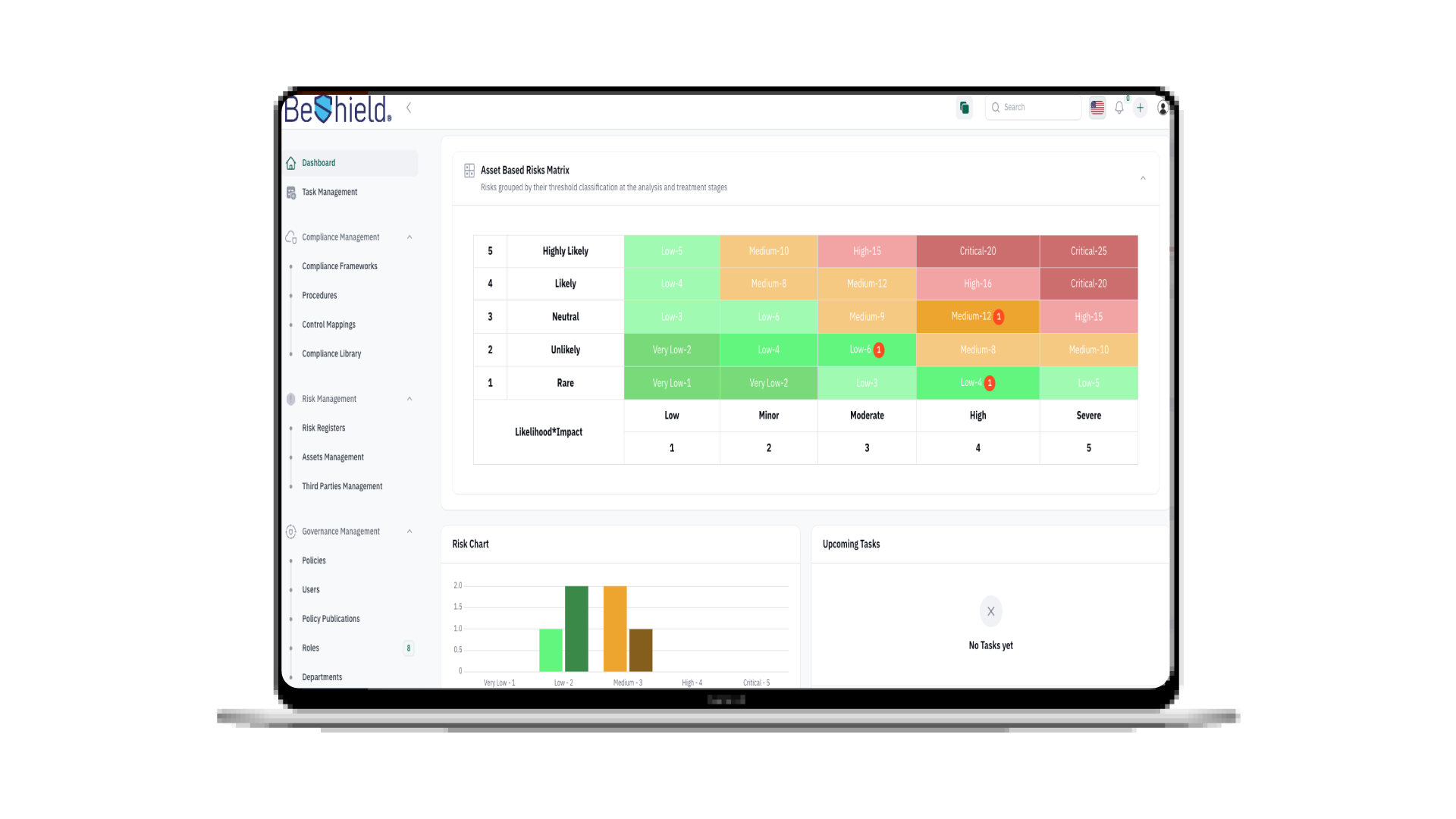Since the beginning of 2020 due to COVID-19 people have been social distancing and staying indoors as much as possible. Due to that the use of the Internet, E-commerce sites, and E-government operations have increased immensely and so have the attempts at phishing attacks.
Phishing Attacks in Saudi Arabia
His Excellency Dr. Khaled bin Abdullah Al-Sabti, Governor of the Cybersecurity Authority, spoke during the opening of the Global Cybersecurity Conference on April 7th, 2021, about the high increase in phishing sites by about 300% and the importance of being aware.
Below (Figure A-1 & A-2) we can see two different examples of Smishing Attacks during this time:
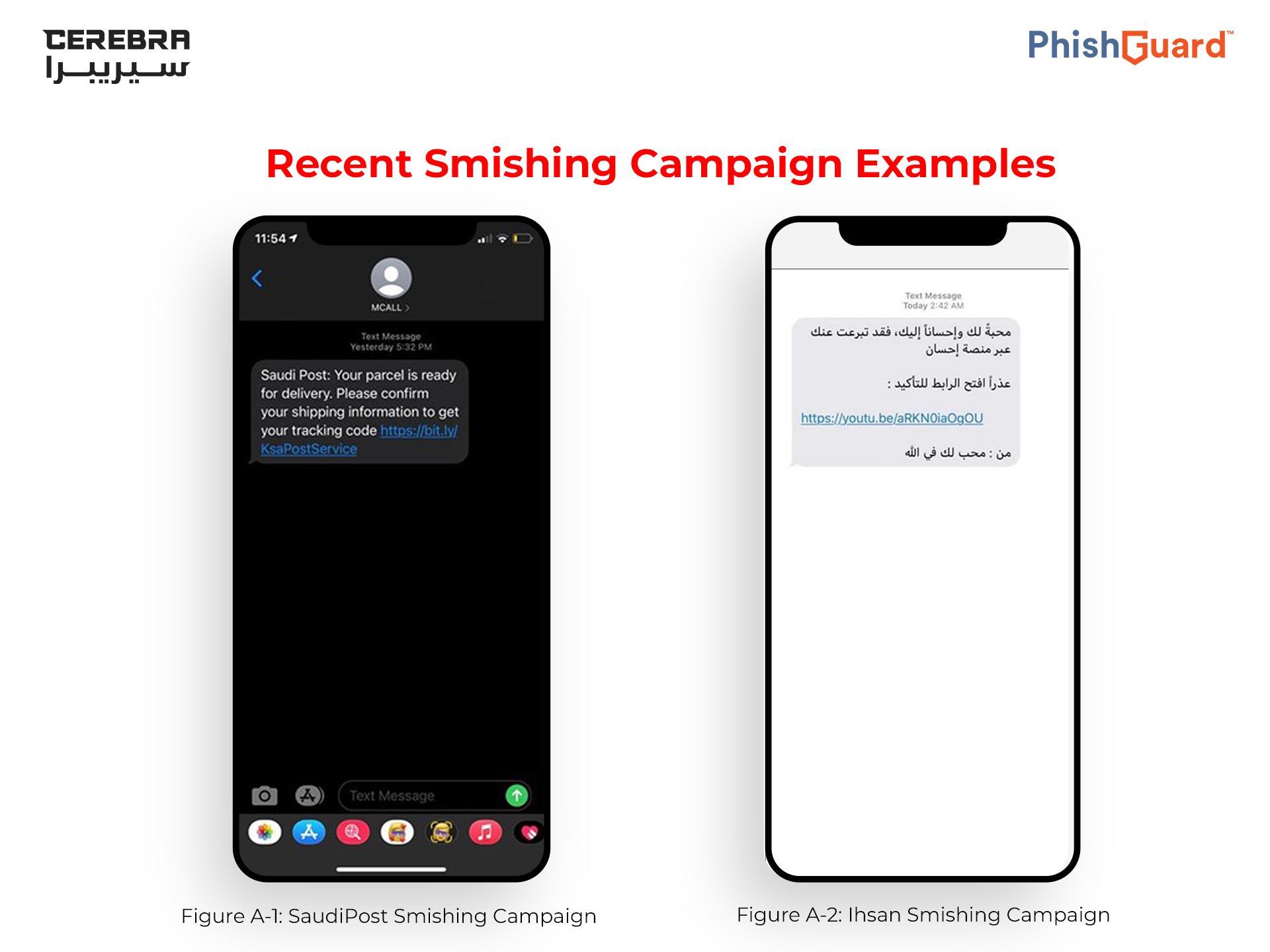
Logistics (shipping companies) are an integral part of the ecommerce system. We find here the method that the malicious attackers are using is impersonating SaudiPost to carry out their phishing scams by sending text messages as shown in the figure below:
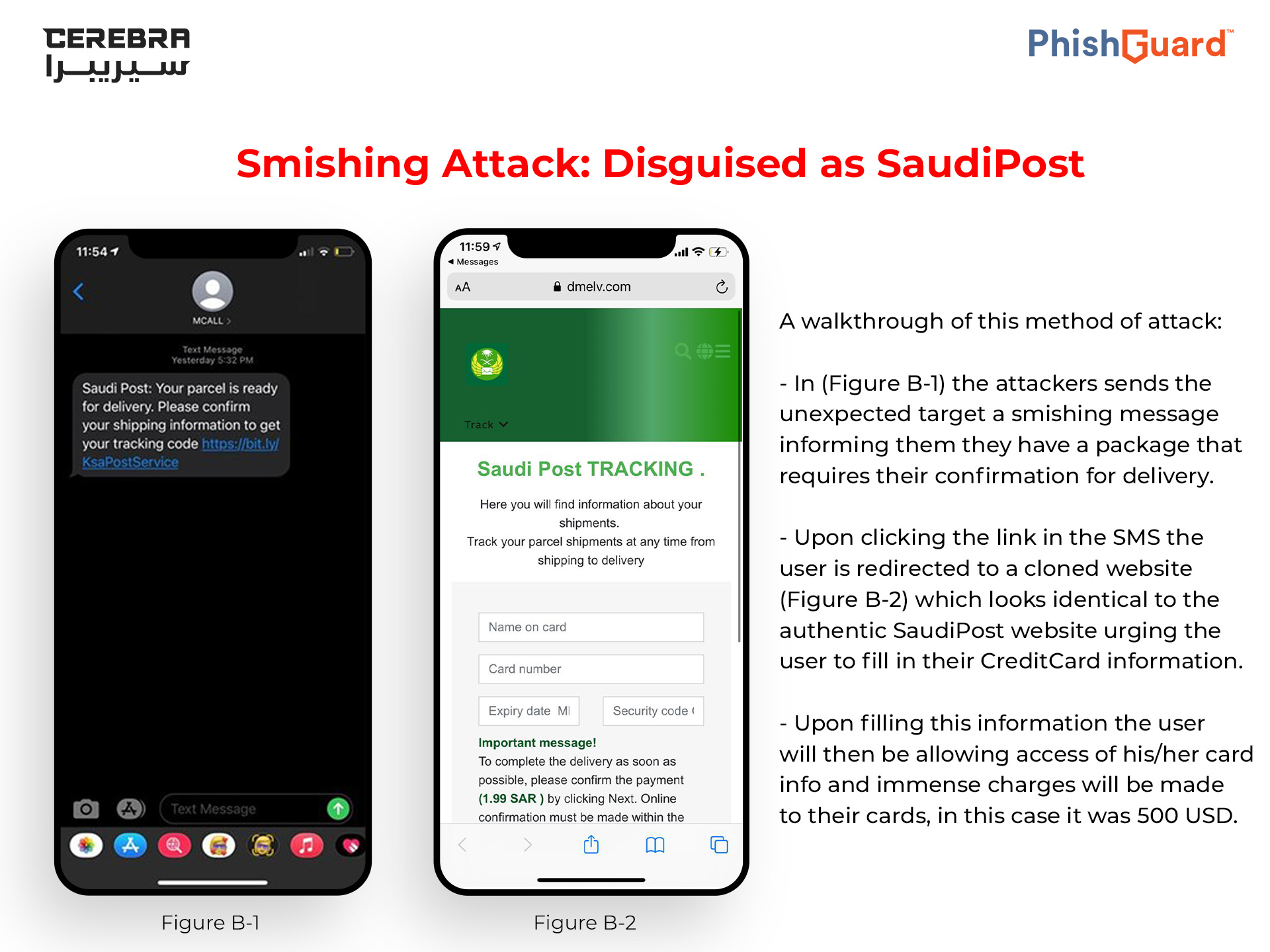
It also seems that with the recent launch of the Ihsan campaign and application and during the blessed month of Ramadan, people’s interest in doing good in this holy month is being used to launch various phishing scams, as shown above in (Figure A-2).
And in another attack, these malicious users are also trying to bait unsuspected individuals by impersonating the most used sites in the region such as the Absher website for governmental services and redirecting users to a cloned website where they can steal the user’s sensitive information.
Phishing attacks does not only occur via email; other methods of phishing include:
– Voicemail which is called Vishing.
– SMS and WhatsApp Messages which are called Smishing.
– And even via Social Media Platforms.
How can you avoid becoming a victim of a Phishing attack?
– Check the subject and sender of the e-mail or SMS: Phishing messages usually urge the user to act immediately (Buy Now! You’ve won the lottery!, Please confirm your information)
– Do not click on any unknown links: If you do not know where the link leads to, then do not click it! Always make sure to double check where the link is taking you by hovering your mouse over it to get more information.
– Only visit secure and authentic websites: When entering confidential or sensitive details, make sure you use a safe website. Check that the address in your browser starts with “https://” rather than “http://” to ensure you are using a safe web server. In addition, a small padlock should appear near the address.
– Increase your security!
* Install a firewall or improve your current security.
* Install updates as soon as they become available to keep your browser safe.
* Make sure your operating system is up to date.
* Use well-known anti-virus software and keep it up to date.
* Install Anti-spam software.
* Install Anti-spyware software.
* Delete cookies as often as you can.
The ideal way to avoid becoming a victim to a phishing attacks is to increase our awareness on the cyberthreats we face every day.
Share this article:
Popular

Enhancing Cybersecurity for a Leading Saudi Ministry
A prominent Saudi Arabian ministry has taken significant steps in its digital transformation journey, focusing on strengthening its cybersecurity framework while aligning with the goals of Vision 2030. In the face of challenges like outdated authentication methods, complex access environments, and strict compliance requirements, the ministry embarked on a two-phase solution to address these issues effectively. Phase One: Implementing Cerebra mPass MFA The first phase of the solution introduced Cerebra mPass Multi-Factor Authentication (MFA), designed to offer a more adaptive, user-friendly approach to authentication. This system enables seamless access controls for users while enhancing security through multiple layers of verification. ...
26th May 2025
Revolutionize Enterprise Communication Platform with LinQ2
Revolutionize Enterprise Communication Platform with LinQ2 In today’s fast-paced business environment, enterprise communication platform is the backbone of success. Whether reaching customers, coordinating with employees, or automating notifications, having an effective enterprise communication platform is essential. Cerebra’s LinQ2 stands out as the ultimate solution, offering a multi-channel notification platform tailored for businesses of all sizes. Why Enterprise Communication Platform Is Essential for Business Growth? Efficient enterprise communication platform ensures businesses can stay connected with their customers and teams in real time. Poor communication systems often lead to missed opportunities, customer dissatisfaction, and delays in internal operations. Key Features of LinQ2 ...
11th Mar 2025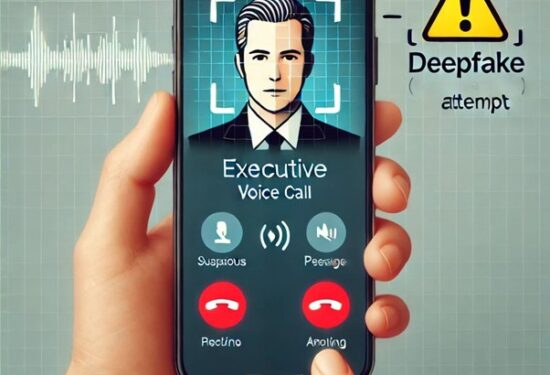
Deepfake in Phishing: Challenges and Solutions
In the era of advanced technologies, especially with the explosive adoption of Large Language Models (LLMs) and Generative Artificial Intelligence (GenAI), deepfake has emerged as one of the most significant challenges in cybersecurity. This technology relies on Artificial Intelligence, specifically deep learning and the use of GenAI, to create fake yet highly realistic content that is difficult to detect. Deepfake serves as a versatile tool spanning applications from entertainment to cybersecurity. However, its misuse can pose severe risks, especially in phishing schemes. What is Deepfake? Synthetic media refers to a technology that leverages deep learning algorithms to create ...
19th Dec 2024
AI Governance: Opportunities and Challenges in Cybersecurity
AI Governance: Opportunities and Challenges in Cybersecurity With the increasing reliance on AI technologies in various fields, AI Governance has become a key factor to ensure system integrity and data protection. This governance plays an essential role in enhancing confidence in modern technology and ensuring that it is used responsibly. It has been almost two years since OpenAI’s ChatGPT went viral, igniting widespread interest in artificial intelligence (AI) and setting off a wave of technological and investment growth in the field. Academic and technical investments in artificial intelligence: The advancements in AI since then have been staggering, with exponential increases ...
14th Nov 2024
Cyber Warfare Unveiled: Tracing the Journey from Espionage to Digital Combat
“Cyber Warfare: From Espionage to War A Journey Through Time” With the massive technological advancements, the boundaries of warfare have expanded to encompass cyberspace, where “cyber warfare” has emerged as an increasingly serious threat to individuals, institutions, and countries. The line between cyber and traditional wars has blurred for a while but recent activities in the region made it clear that cyberwars is becoming a dangerous and can lead to harming humans. In this blog, we will dive into a journey through the world of cyber warfare, seeking to understand its nature, history, impacts, types, evolution, and some solutions to ...
9th Oct 2024
Keeping Our Kids Safe Online
A Guide For Keeping Your Kids Safe Online Parents and all who are concerned about the well-being of our young kids in this digital world. Today we will discuss a topic of utmost importance: digital safety for kids. Yes, the Internet can be a very dangerous place for our young kids , especially with the spread of phishing scams. So, let us dive deeper and present to you, in this comprehensive article, a comprehensive guide on digital safety for kids. What every parent needs to pay attention to. Internet risks for kids: The internet has become a big part of ...
17th Jul 2024
Could you be hacked through Slack?
Could you be hacked through Slack? The usage of collaboration platforms such as Microsoft Teams and Slack has significantly increased, with nearly 80% of employees utilizing them. These platforms are designed to be convenient and easily manageable for daily conversations within organizations. However, what makes them easy and convenient also renders them vulnerable to cyber threats and attacks. In 2021, for instance, 780 gigabytes of data from the gaming giant Electronic Arts (EA) were breached through Slack! During the same year, a security vulnerability in Microsoft Teams was exploited to launch a widespread cyber attack on ...
12th Jun 2024
Tips To Be Cyber Protected While Traveling
Goodbye worry! A safe journey in the digital world With all the modern wonders of the digital world, we trust communication technologies on our journeys. There is no doubt that the travel experience is always more beautiful and enjoyable, but it can also pose a range of risks, especially when it comes to cybersecurity. Travelers may fall victim to phishing, Wi-Fi network spying, and theft of their personal data, which can make their journey filled with worries and tension. With the increasing prevalence of cyber threats, it is essential for travelers to follow some guidelines to protect their devices and ...
1st Apr 2024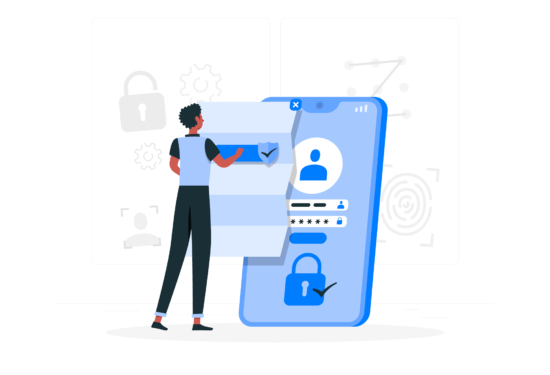
Push Authentication: A New Era in Multi-Factor Authentication
Want To Say Goodbye To Passwords and OTP Codes? Discover Push Authentication! It is easy for your password to be compromised through phishing attacks, even if it meets the cybersecurity strong password standards and is difficult to predict So we must get to know the technique of Push based Authentication. Some may recommend that you use Multi-Factor Authentication (MFA) to increase your security. Multi-Factor Authentication (MFA): MFA is the process of logging into your account through multiple steps. It requires you to enter more information, not just your password. But there is another obstacle that arises when using such ...
14th Feb 2024
